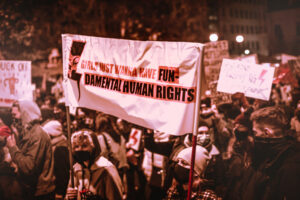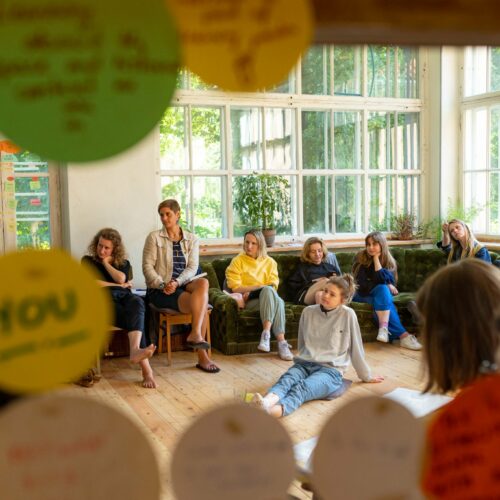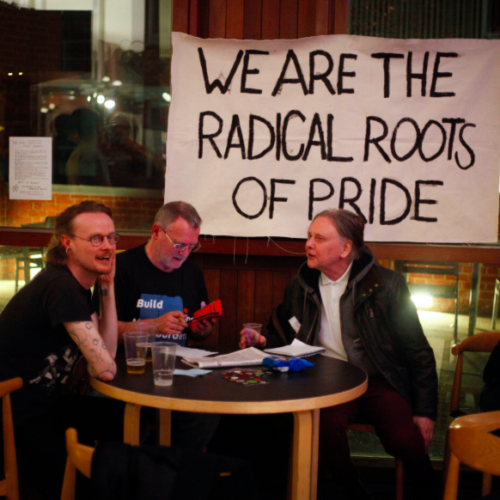The main mission of Camera Femina is to prevent social exclusion due to gender identity, origin, economic status and support all marignalised and disenfranchised groups in Poland with the special focus on womxn and LGBTQ+ rights. The tool they use to create social change is culture.
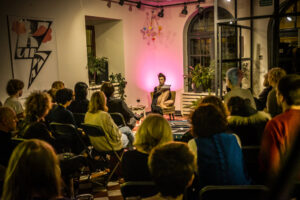
They werk on bringing about societal transformation by:
1. organising two festivals (feminist and queer): the participation in both of them is free of charge, since economic barriers are a significant factor hindering full participation in and access to culture. Persons taking part in Camera Femina events come from different social groups, a sign that this crew is walking the talk of social justice with equality and accessibility at its core.
All of the events are translated into Polish Sign Language, some of the screened films have an audio-description that they create themselves, all of the events are organised in conveniently located venues, adjusted to the needs of persons with physical disabilities. This part of their operations is particularly important since it:
– sensitizes local community to the issues connected with social exclusion of persons with disabilities;
– increases representation and participation of persons with disabilities in social, political and cultural life in the city;
– creates a more welcoming and inclusive vibe;
– rises standards of cultural events which should be accessible to anybody interested;
– prevents further systemic exclusion, misrepresentation, and frustration.
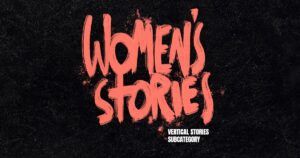
2. conducting anti-discrimination, intercultural and inclusive language workshops and events, since creating space for educational and advocacy activities raises the social and communal understanding of the problems of social injustice.
3. cooperating with local Polish NGOs: for instance, Camera Femina works with the Equality March Association to support the queer community in Lublin – the city in which the Pride March was banned twice by the mayor, but which has grown despite all the systemic odds.
Their strategy is based on the belief that social change is possible through processes in which culture plays a key role. The Camera Femina crew believe that films, literary meetings, concerts and discussions can change lived reality and present the ideas and narratives which the current right-wing government regards as a threat to “Polish traditional values”, represented in practice by oppression, patriarchy, and inequality. Their activity is based on close cooperation with local communities, strengthening marginalized voices, and providing them with a safe space and a level playing field.
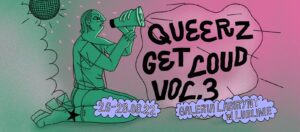
How do diversity & intersectionality factor into Camera Femina team culture & approach to radical change?
“Diversity & intersectionality are the most important factors which we take into account while thinking about our work. We cannot imagine creating a social radical change without acknowledging and empowering of the groups marginalized in our society. This translates into our day-to-day operation: our activities are free of charge (with one exception), adjusted to the needs of persons with disabilities, we provide English and sign language translations, we create our own audio-descriptions of films presented during our festivals, we invite people from many different backgrounds to our events. The radical change in Poland can occur only thanks to the cooperation of many different marginalized groups which may have seemingly different particular goals but all the problems that we struggle with are after all the result of capitalistic, patriarchal and androcentric strategies that we are surrounded with. It can apply both planet exploitation as well as discrimination based on the non-binary identity. It’s impossible to care about environmental justice without care about gender justice, it’s impossible to fight for women’s rights while excluding trans women and it’s impossible to empower LGBTQ+ community in Poland without remembering about the socio-economical background of its representatives.”
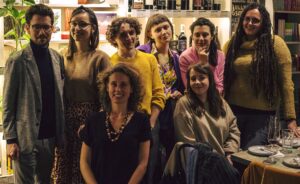
The Guerrilla Grant
Our support is going into core funding to develop and grow the Camera Femina initiative, which will involve:
– Demakijaż – Interdisciplinary Festival of Womxn Arts (est. 2016): the festival needs additional financial support since the donation granted by the local authorities was cut significantly (more than 50% that the proposed amount). Camera Femina wants to continue delivering high quality content to the growing audience in Poland, create a safe platform to exchange feminist ideas, comment on and discuss the situation of womxn and marginalised groups across the country;
– A series of workshops for youth and adults focusing on inclusive language: raising awareness about inclusive language is an important tool to shift the current dominant (heteronormative) narrative and push for social change;
– A series of workshops for youth and adults dedicated to queer expression and identity to empower the local LGBT+ community
– Sex education workshops;
– Environmental workshops that look at how ecology and social justice intersect.
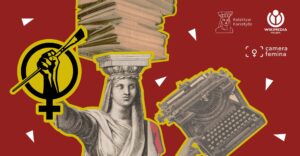
The Camera Femina policy is organising events which are free of charge so that everyone can participate with no regard to financial situation. The six past editions of the festival show clearly that the audience is really diverse and including people who are coming mainly because the event is free of charge which can turn out to be interesting for them. In that way they go beyond middle-class, urban audience target group. The festival “Demakijaż” is also a platform of ideas’ exchange for artists, activists, filmmakers and participants who identify with the feminist movement in Poland. The possibility to meet face to face and share experiences seem to be especially important in the post-pandemic. During the festival current issues are brought up which are widely discussed by the feminist community in Poland, except from cultural events, they organize workshops, debates and meetings with experts as a part of the program.
The workshops which they are planning to run are connected with the topics which are the area of expertise of particular members of their team: inclusive language – Jola Prochowicz, queer identity – Simona Kasprowicz, environment and social justice – Joanna Bednarczyk, sex education – Jola and Joanna. The topics of the chosen workshops reflect the needs of youth and young adults in Poland due to the malfunctioning of the educational system under the rule of the conservative Law and Justice and ultra-conservative Education Minister Przemysław Czarnek.
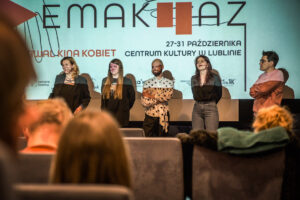
The Camera Femina team members have a vast knowledge on the topics and experiences of running workshops in many different locations including small towns and villages. Moreover they cooperate with Piwnica Labiryntu – a group of young queer people from Lublin Region (also from villages nearby) who organized a safe-space for themselves with support of the Lublin Labirynt Art Gallery. The majority of the members of the group have experienced cross-discrimination because of their financial situation (small villages in the Polish countryside struggle with many problems including unemployment, transportation exclusion, educational exclusion, hate speech, discrimination in the family, or in the most extreme cases eviction from home due to psycho-sexual identity).
They believe that free of charge workshops for the groups like that would create a real change in the society. Moreover Simona, Jola and Joanna have experiences in working with youth and teenagers from different backgrounds and have the access to future participants of such workshops. Thanks to the participatory vibe and structure of many sessions, the public feels seen, wanted, understood and well taken care of which makes them more engaged in the future activities and very often they became human rights allies and activists.
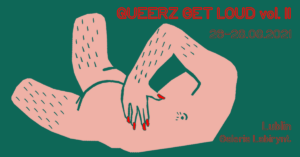
Camera Femina cooperates with:
– numerous queer/feminist activists and artists in Poland;
– Fem Fund (https://femfund.pl/en/);
– Fundusz dla Odmiany (https://dlaodmiany.org.pl/en/);
– Trans-fuzja Foundation (https://www.transfuzja.org);
– Homo Faber Association (http://hf.org.pl/en/);
– Marsz Równości Lublin Association (Equality March);
– Centre for Culture in Lublin;
– Labirynt Gallery in Lublin;
